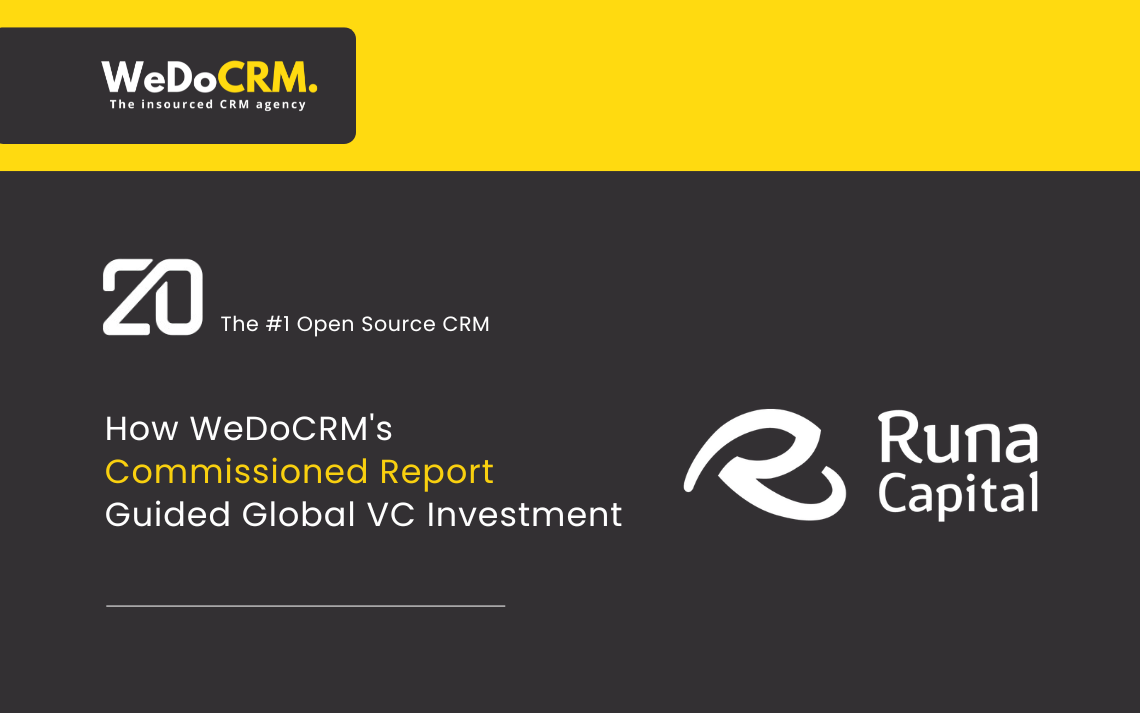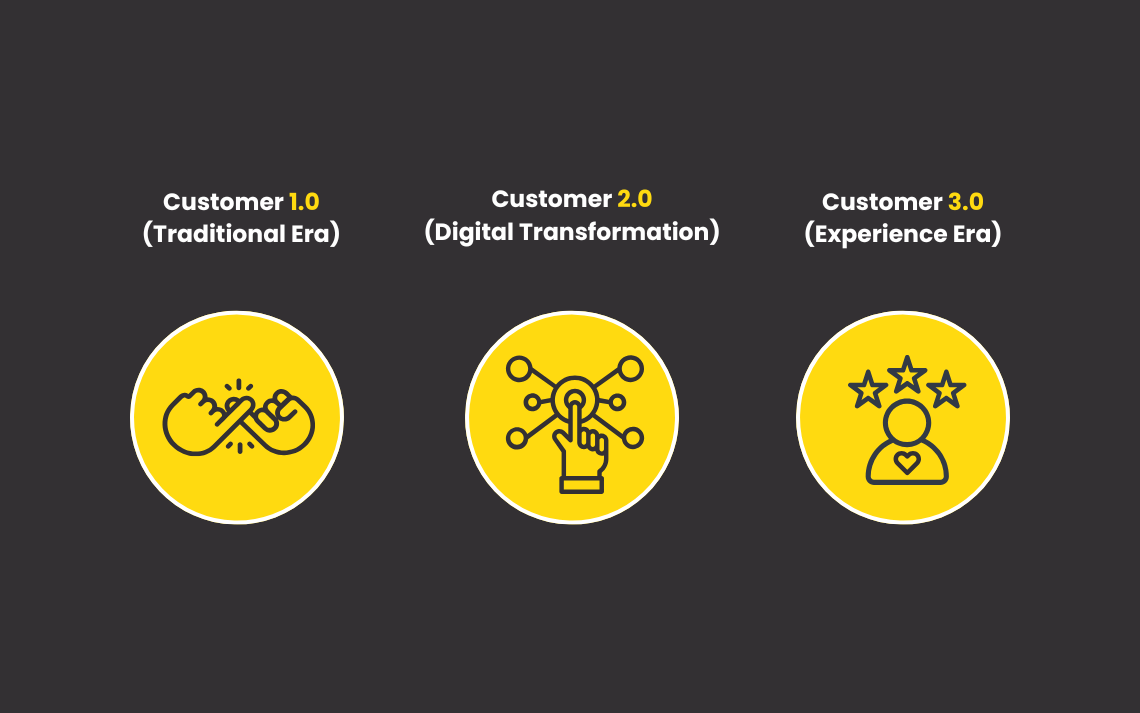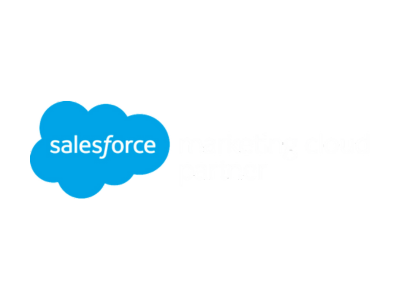CRM is the fastest growing software market on the planet, yet it remains one of the most mysterious and under-represented specialisms out there. 95% of business-to-business (B2B) buyer decisions are influenced by marketing and sales content.
For years, a lack of knowledge in regard to CRM as a holistic function in B2B, has caused an unintended war between 2 of the 3 core Commercial pillars; Sales and Marketing (the other being Customer Success).
Now, before I delve into the nitty gritty of it all, I feel I need to point out that there isn’t an actual war raging (obviously), but more of a multi-decade long disagreement and misunderstanding born out of gaps in knowledge.
The B2B Sales and Marketing process
When it comes to B2B, the Sales Pipeline is the most critical aspect of the business – it’s the beating heart that needs to be protected and nurtured at all times.
There is actually a clearly defined process for Sales and Marketing to work optimally together – one that most in these disciplines are unaware of. The process centres around CRM – the glue that makes the two functions work seamlessly together without stepping on toes.
Understanding the role of Sales
Also known as the shop floor team, Sales have the most intimate professional relationship with a business’ Prospective Customers. Their role is to identify the need (aka ‘the Why’) and deliver the solution (‘the How’).
The Sales Pipeline is a fundamental tool delivered through CRM software that allows the Sales team to track the buying journey of a Deal. However, due to a lack of knowledge in CRM that subsequently affects the roles that Sales and Marketing play in the end-to-end process, the Sales Pipeline is often left vulnerable. The result is often low Sales efficiency, poor Lead and Opportunity conversion (aka ‘the leaky bucket’), and increased Marketing spend.
But why is this and what’s the main cause? To understand this we have to explore the role of Marketing in B2B.
Understanding the role of Marketing
The common misconception in the world of B2B Marketing is that it’s all about brand and lead generation. Whilst these are important aspects of what the Marketing team does on a daily basis, they aren’t the most critical.
In fact, the most critical role of Marketing, which more often than not isn’t even on their radar, is support of the Sales Pipeline itself. Most have worked under the impression that Sales and Marketing are opposing forces in constant battle for territory, especially when it comes to Lead generation and qualification. The result of this is that data flows in a restrictive, conflicting linear direction that only goes one-way.
B2B Commercial Process – how most people think it works
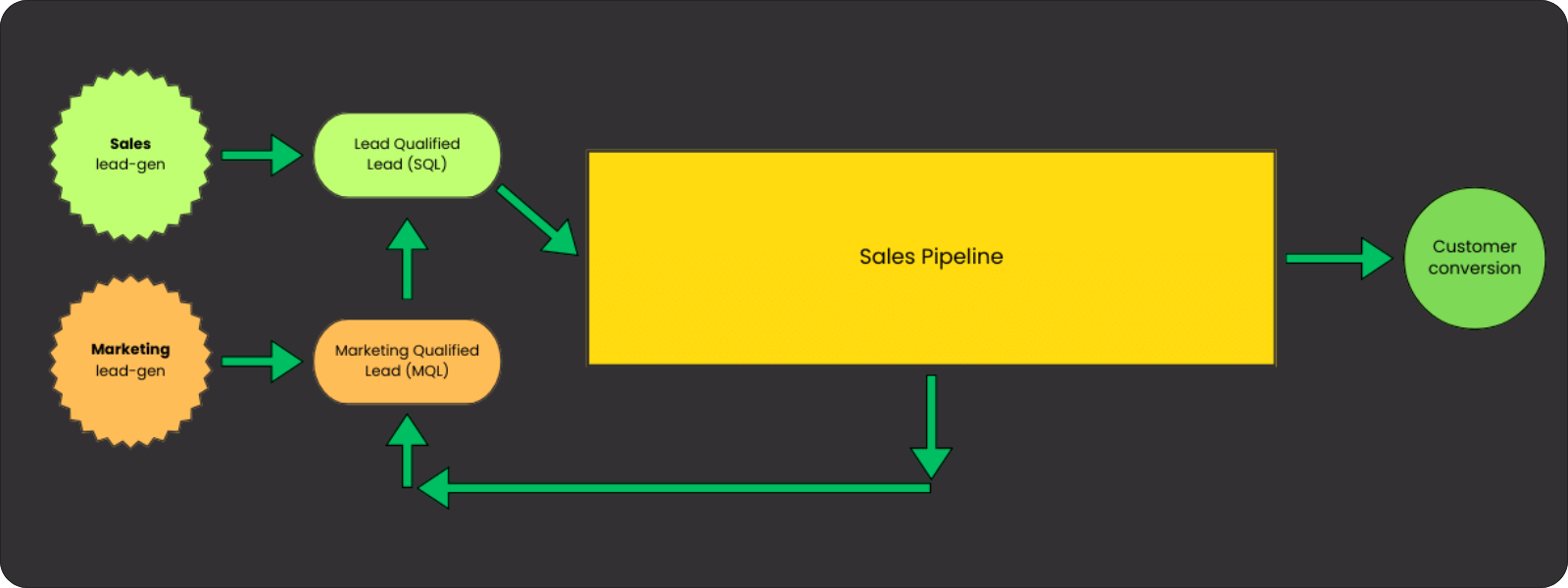
The above graphic shows how many businesses in the world of B2B perceive or run the Commercial process. Sales and Marketing often work as opposing forces, feeding Leads into the Sales Pipeline that are tend me be un-vetted and of poor quality. The impact is a reduction is Sales productivity and efficiency due to time inefficiency and general lack of process.
B2B Commercial Process – how it should work
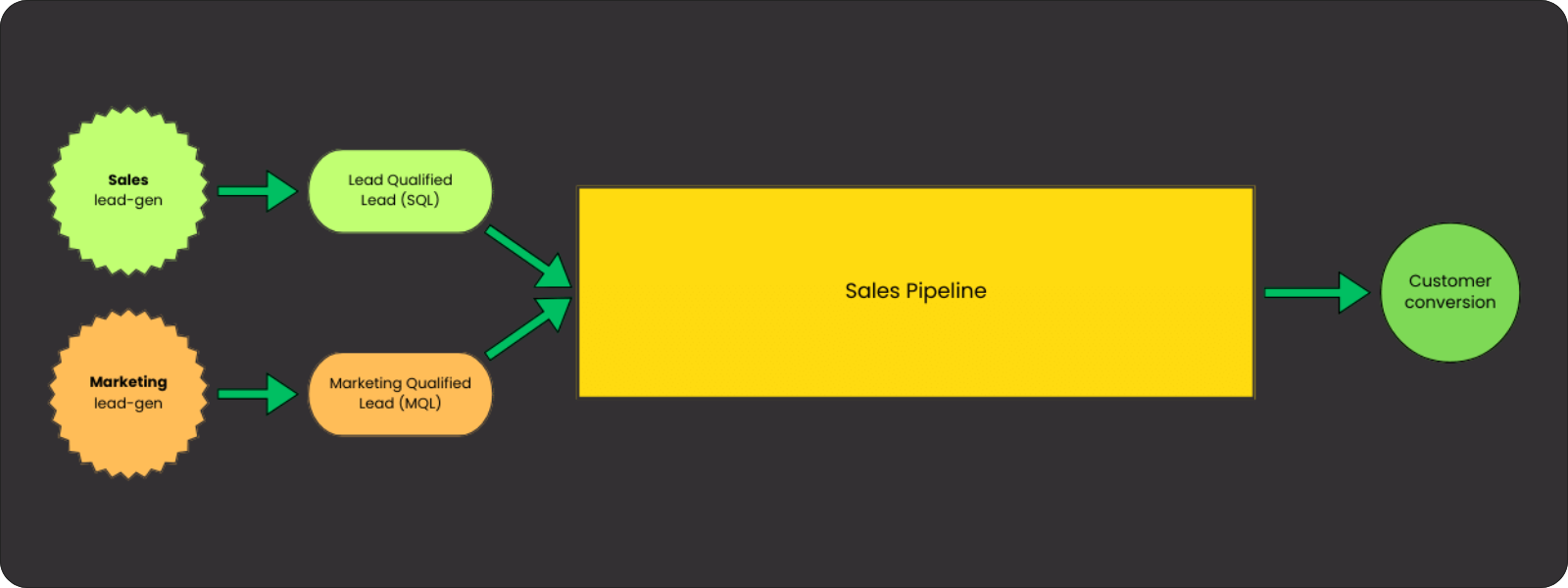
The above graphic shows how the process should work with the support and governance of CRM. Whilst much of the structure is the same, there are clear distinctions that show how Sales and Marketing work as a cohesive unit.
The role of Marketing is to support with the generation of qualified leads (MQLs) that are pre-vetted and then handed over to Sales for further qualification (SQLs). The purpose of this is to increase Sales efficiency by preventing the Sales team wasting precious time on cold leads that are never going to convert.
By using highly optimised automated lifecycle workflows, Marketing can filter these Leads away from the Pipeline, either indefinitely or until they show genuine signs of consideration.
Another key difference, and the most important for Marketing, is the support given to the Sales Pipeline in regard to stalled or lost Opportunities (aka Deals). For most businesses there is no safety net in place to prevent Opportunity wastage – meaning the time, resources and monetary investment that has gone into that Opportunity to-date, is wasted, often resulting in that business going out and reacquiring and reconverting at a later date… if they’re lucky.
However, with the support of CRM, safety nets can be put in place to ensure any churned Opportunities are identified, enrolled into high performing nurture sequences until such a time that they can be pushed back into the Sales Pipeline, at the same stage, for the Sales team to then attempt to convert. No wastage, no starting again, no reacquisition costs.
Conclusion
Sales and Marketing are not mean’t to be at war – far from it. They are both essential sides of the same Commercial coin with very specific roles to play that seamlessly compliment one another. However, without CRM and the expertise it offers, it will be a challenge to implement and maintain the critical system infrastructure and processes that allow these two teams to work as one.




